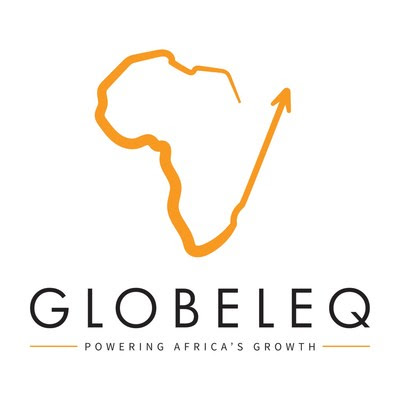MAPUTO, Mozambique, Dec. 8, 2021 /PRNewswire/ — Debt financing of the US$652.3 million project is being provided by IFC, together with its “B” loan participants FMO and Emerging Africa Infrastructure Fund (together US$253.5 million), US International Development Finance Corporation (DFC) (approximately US$191.5 million) and the OPEC Fund for International Development (OPEC Fund) (US$50 million). The Multilateral Investment Guarantee Agency (MIGA) has provided up to $251.3 million in political risk insurance to the private sector equity investors.

Located at Temane in Inhambane Province, CTT consists of a 450 MW gas-fired power plant which will supply power to EDM under a 25-year tolling agreement. CTT is expected to provide electricity to meet the demand of 1.5 million households and will contribute about 14% of the electricity supply capacity available to meet demand in Mozambique.
The project is aligned with the Paris Agreement and will support Mozambique’s longer-term sustainable energy transition to net-zero by 2050. CTT’s flexible technical and commercial configuration allows for a variable supply of baseload and dispatchable power and will deliver complementary power so that Mozambique can maximise renewable energy generation projects on its grid and pursue lower carbon energy development. In addition, the Siemens SGT-800 turbines chosen for the plant can be upgraded to handle high hydrogen content, further reducing the plant’s carbon impact.
CTT also anchors a new 563 km high-voltage transmission line (the Temane Transmission Project (TTP)) and secures the first phase of the interconnection of the southern grid to the central and northern grids of Mozambique. This will establish a corridor of electrification and ensure a more stable and secure grid and enable the connection of future renewable generation projects. The TTP is owned by EDM and will be funded using grant and concessional finance provided by the World Bank, Africa Development Bank, Islamic Development Bank, OPEC Fund and the Norwegian Government. Together, the entire value chain (gas development, gas fired power plant and transmission infrastructure) will see an investment of more than US$2 billion.
“This pioneering project has the potential to deliver significant economic and social benefits by helping meet Mozambique’s growing demand for power, support the country’s economic recovery and the region’s energy transition. This is our third power investment in Mozambique, and we remain committed to supporting the sustainable development of the country’s electricity sector”, said Linda Munyengeterwa, IFC’s Regional Industry Director for Infrastructure, Middle East & Africa.
DFC financing for this project will support people and businesses throughout Mozambique by reducing the cost of electricity and increasing generation. These are important development gains that will spur further economic development in communities across the country.
Abdulhamid Alkhalifa, Director General of the OPEC Fund said: “The OPEC Fund supports the development of the Temane power plant, as well as the complementary transmission infrastructure through its private and public sector loan facilities. Our assistance reflects our commitment to the Sustainable Development Goal 7- Affordable and Clean Energy. Once completed, Temane will increase the supply of efficient and affordable energy to households, businesses, and industries, contributing to social and economic development in Mozambique and the region.”
The Minister of Mineral Resources and Energy, Hon. Ernesto Max Elias Tonela confirmed: “As a country that is at risk from the worst effects of climate change, our government fully supports the Paris Agreement. We are working on our long-term decarbonization plans in line with that Agreement and CTT is fully in line with our transition which also includes developing hydro, solar and wind projects.”
The project will be built by the Spanish contractor TSK, utilising efficient and well-proven Siemen’s gas turbine technology. TSK has extensive experience in designing and constructing similarly sized combined-cycle power plants and will leverage their in-country construction experience during the 34-month construction period. CTT is expected to generate around 830 jobs during construction and 90 permanent jobs during operations. This excludes engineering and other work performed off-site. Mozambicans will be prioritized for jobs during both construction and operations. It is estimated that the project will support the creation of 14,000 indirect jobs and livelihoods when it becomes operational in 2024.
Mike Scholey, CEO of Globeleq, indicated: “Globeleq is committed to supporting the Government’s aim of achieving universal electricity access by 2030 and positively impacting the regional energy landscape. The Government of Mozambique, through EDM, is a strategic partner for Globeleq as we grow to develop other projects in renewables, such as the Cuamba solar and battery project and other wind and solar developments underway.”
EDM’s Chairman, Marcelino Gildo Alberto, believes that “a new phase is now opening in the energy sector, with EDM leading the way in the processes of generating increasingly cleaner electricity to promote the country’s industrialisation and export to the regional market.”
Priscillah Mabelane, Executive Vice President for Sasol’s Energy’s Business said: “Sasol is proud to partner with EDM and Globeleq in this exciting Temane project, which will create jobs, enable sustainable and lower carbon energy supply and long-lasting in-country benefits. She added: “Sasol is committed to a meaningful contribution towards the development Mozambique.”
CTT is expected to provide first power in 2024.
Logo – https://mma.prnewswire.com/
